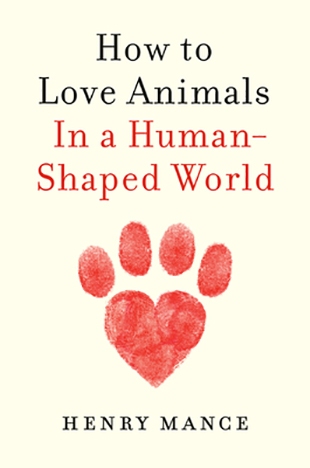What you can do
1. Stop eating meat.Even with the best intentions, it's impossible to eat meat only from good farms. And even good farms push animals' bodies to the limit, while giving them little chance to flourish. Can the taste of meat really be worth this amount of suffering and pollution? The system is rotten, and vegan food is not.
2. Give up dairy. Humans are not baby cows. Drinking another animal's milk is not essential, and there is no humane way of producing dairy at scale. Cutting out dairy may well reduce your carbon emissions more than cutting out meat. One way is to start by ordering vegan options in restaurants: eating out is when you have the least control over the origins of animal products, and when vegan cuisine is at its best.
3. Eat less fish. Try to eat fish caught only by low-impact, small-scale fishing boats. Even better, limit yourself to seafood that is sustainable and doesn't suffer -- farmed mussels, oysters and clams.
4. Experience the wild. Go camping. Go birdwatching. Go hunting (for deer, not for released birds). Feel the natural world and become angry that we are destroying it. The creatures around us -- frogs, crows, dragonflies, foxes -- are just as beautiful and their behaviour, in the wild is more fascinating than anything in zoos.
5. Or don't. Treating animals justly doesn't mean you have to love them. It just means believing that other creatures' suffering matters. You can do that from your sofa.
6. Offset your pet. For every pound you spend on your pet, spend another helping other species. Donate to conservation organizations. Place stickers on your windows to stop birds dying in collisions. Build habitats for frogs and bees.
7. Shrink your footprint. We're squeezing wild animals off the planet. Ask for second-hand birthday presents. Give up flying. Take pleasure in things that don't arrive in huge boxes; take pleasure in things that aren't things.
8. Tell kids the truth. Let's not pretend that the world has to be like this. Let's not try to explain away the way we treat animals. Let's not acclimatize kids to meat and dairy and mad consumerism. It's their world we're sabotaging. It's their arrival that can push us to change. We have screwed up a lot -- let kids embarrass us into doing better.
What we can do together
1. Demand transparency over meat and clothing. People should know how animal products are produced. Milk, leather, chicken and farmed salmon are four areas where consumers are shopping in the dark. Sunlight will bring higher standards. For factory chickens and pigs, it may bring actual sunlight. The goal is the end of the cruelty and waste of factory farming.
2. Promote vegan foods. People eat more meat outside the home, because that is what's on offer. Schools and public buildings should offer as many vegan options as they do meat and fish. Governments should use planning laws and agricultural subsidies to boost the least-polluting, highest-welfare foods.
3. Create national parks and fill them with species. There is time to protect 30 per cent, or even 50 per cent, of our land and sea, but we have to act now. This is the best way to keep animal populations healthy. It promotes mental well-being and tourism. If you're a billionaire, there's no better way to spend your money. If you're not, you can still lobby and donate. We need large reserves, connected by corridors across agricultural land and through urban areas. We should introduce the species that previous generations drove out. But where local people pay the price they must be compensated fairly.
4. Show children the outdoors. We love animals before we go to school, then we have to learn to love them again after we've left. We should let our kids see how nature works, and how unbalanced our relationship with other species is. Our curriculums could do more, including a dedicated natural history syllabus. But most of all, children need to be taken outside, away from concrete -- to gardens in schools, to parks and wetlands. They can only fight for what they know.
5. Be more critical of zoos, less critical of ethical hunting. The zoo today is a pastiche of the natural world and a recipe for frustrated animals. Zoos should focus on supporting animal populations in the wild, through breeding programmes and land purchases. There is no point in demonizing hunting, when it can provide money for conservation and when populations of deer, wild boar and other animals threaten ecosystems.
6. Cut greenhouse gas emissions. Climate change threatens everything. We need to insulate our homes, phase out coal and gas power stations, electrify our transport system, and more. Our aim should be net zero by 2040. It'll happen only if environmental credentials are at the top of our minds every time we go into the voting booth. The sooner we move away from fossil fuels, the less damage to other species -- and ourselves.
